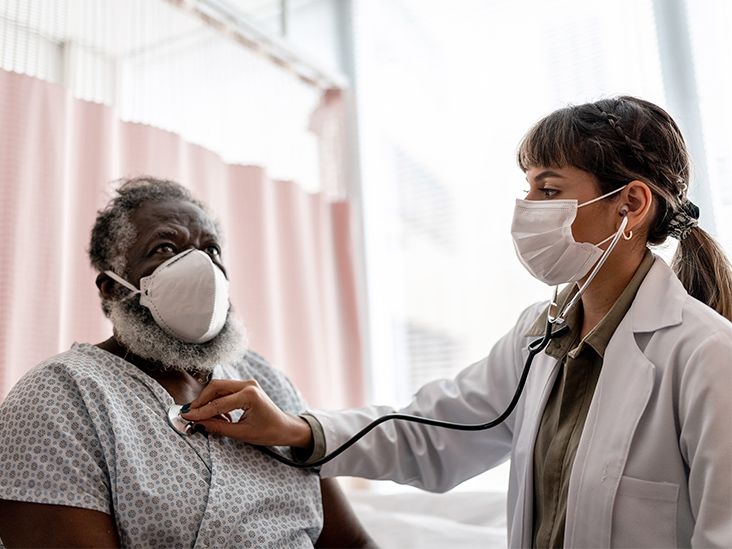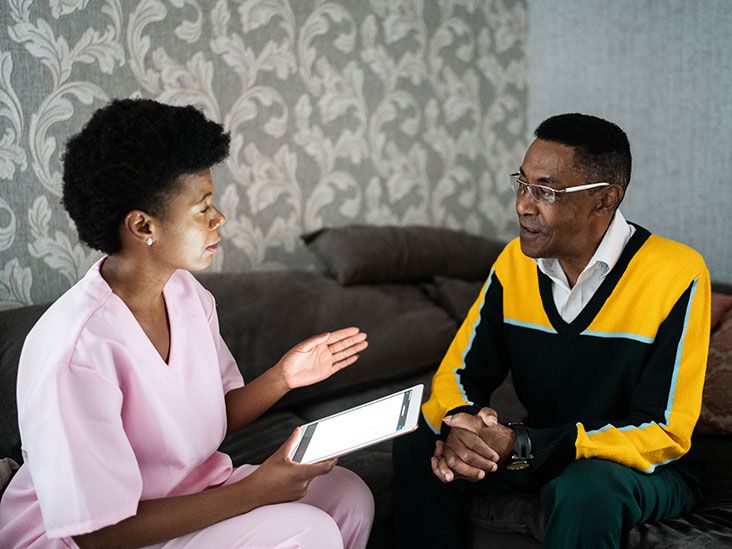You can manage the risks of hypertrophic cardiomyopathy (HCM) with treatment and lifestyle changes. Here’s how to make the most of your next medical checkup.
HCM is a genetic condition in which the heart muscle becomes stiff and thick. This can make it harder for the heart to pump blood and might block the flow of blood out of the heart.
About
You can make the most of your HCM checkup with a bit of preparation.
A few weeks before your appointment, think about gathering important information about your medical history. Start making a list of your questions. Consider asking someone close to you to attend the appointment for support and take notes.
Doctors should know about your current medications and any changes you’ve made since your last appointment. One reason for this is to avoid drug interactions. An interaction is when taking one drug while on another might be dangerous or make one medication less effective.
There are no medications to prevent HCM, but many drugs can help
Check the information label on your prescription containers for the drug’s name and dosage. You might also take a picture of each label to show the doctor at the appointment or even bring your medications with you.
Your medical history should list any surgeries and times you were in the hospital. You’ll also want to describe any chronic health conditions, allergies, and medical diagnoses.
If you have an HCM diagnosis, note whether it’s obstructive or nonobstructive. With obstructive HCM, thickened heart muscle
Because HCM often runs in families, it can be important to know your family health history. Make a note of anyone in your family who passed away suddenly under the age of 40 years old. You should also
- heart failure
- stroke
- heart attack
- heart transplant
- atrial fibrillation
- ventricular tachycardia
- ventricular fibrillation
- pacemaker
- implantable cardioverter-defibrillator
People can
To learn more about your family health history, consider
You can usually request that other doctors, such as a primary care physician, share your past medical records with another clinic or specialist.
Tracking and reviewing your own medical history as you prepare for an appointment can give you more information to develop your own questions for the doctor. It can also help you be a partner in your healthcare.
Try to write down symptoms as they happen. You can use a simple notebook, a smartphone app, or a voice log to record what you experienced.
Details like the time and date of your symptoms can help you and your doctor spot patterns. You may also consider noting what you were doing, such as resting, exercising, or engaging in other activities.
All symptoms are important, but
- fatigue
- dizziness
- fainting
- shortness of breath
- chest pain
- heart palpitation (racing, pounding, or fluttering)
- heart arrhythmia (beating too fast, too slow, or beating out of rhythm)
Besides logging details surrounding each symptom, note whether they seem to be improving or worsening. For example, if you have dizzy spells more often, you might say this symptom is getting worse.
Many people don’t feel comfortable asking questions during an appointment or simply forget to ask. Since the appointment is about your health, your concerns should be heard. Come prepared with a list of things to ask the doctor.
Everyone with HCM has different needs, so a doctor can’t always guess what you want to know. You might want information about family testing, medications, staying healthy, or activities to pursue or avoid.
Jot down questions as they come to you in the days leading up to the appointment.
It’s common to have questions after an appointment. You might want to clarify something the doctor said or double-check instructions. Ask the doctor or nurse how to get in touch if needed. They might say you can call or email the office for routine matters or call 911 in an emergency.
Most physicians’ offices will provide an after-visit summary. This summary may include specific instructions from the doctor. You can also check with the office for informational handouts that may help you understand more about your condition.
A companion can provide emotional support while you talk with your doctor. With someone you trust in the room, it might be easier for you to ask sensitive questions, such as the cost of medications.
They can also take notes. You might want to focus on listening to the doctor while your companion writes down what they say.
A companion might also have relevant information. They might remember when you said you were dizzy, fatigued, or complained of a racing heart. This might help you and the doctor to get a full picture of your symptoms.
A doctor’s visit should support your health goals. Here are some ways to make the most out of your appointment:
- Set an agenda: Because doctors routinely see three to four patients in an hour, your time is limited and precious. At the start of the visit, state your biggest concerns. You may also consider requesting a visit with a physician’s assistant (PA) or nurse practitioner (NP), both of whom have more flexibility in their schedules.
- Be honest: Lifestyle factors can affect heart health. Share things like your job stress, eating habits, and alcohol or substance use. The doctor’s role is not to judge but to make the best recommendations for you as an individual.
- Ask for clarification: One way to ensure you understand the doctor is to repeat the information to them. If they recommend a new treatment plan, it’s important to feel comfortable asking about its advantages and disadvantages.
Ideally, your relationship with a doctor is collaborative, one in which you work together toward shared goals.
All types of cardiomyopathy
Treatment for HCM has reduced the risk of passing away from complications of the condition. The mortality rate for HCM is now about
Consider your important questions before your next HCM checkup. To make the most of your time with a doctor, gather your medical information, track symptoms, and bring a companion for support. These all can help support a collaborative relationship with a doctor.










